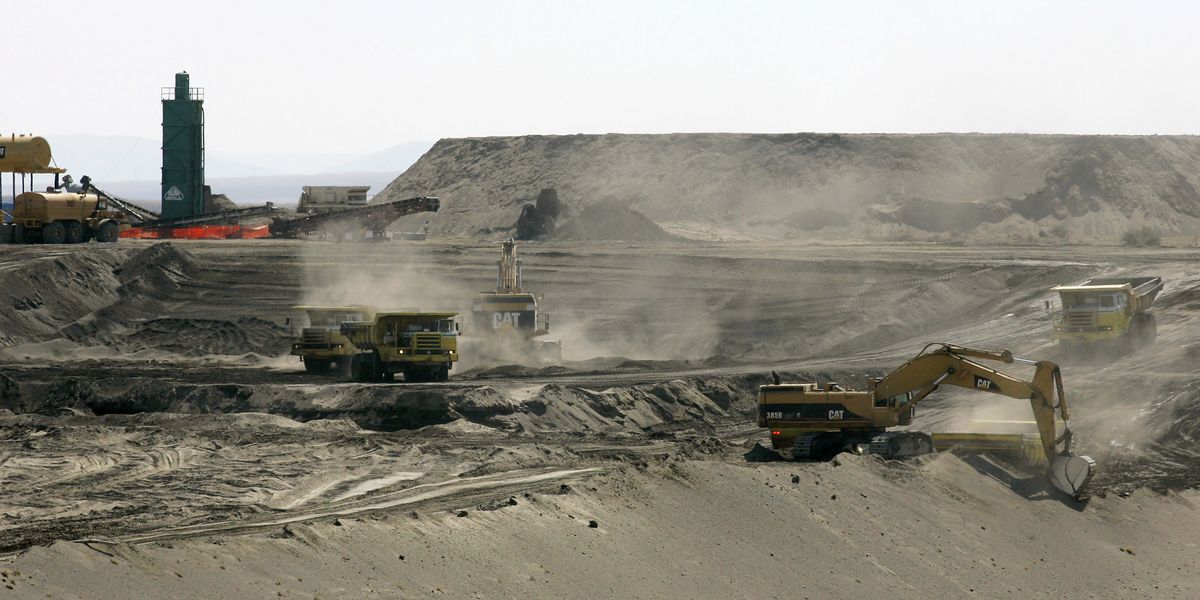Hanford violators will get stimulus
Contractors were repeatedly fined

RICHLAND – Federal contractors that were heavily fined for environmental and safety violations at the nation’s most contaminated nuclear site will receive much of the $2 billion in economic stimulus money the government is spending on cleanup there.
Two contractors receiving much of the money – Washington Closure Hanford and CH2M Hill – have repeatedly been fined or had their pay reduced, but the companies are among the few contractors able to handle the specialized cleanup required at the Hanford Nuclear Reservation. They and the government say they have learned from past mistakes, and the stimulus money is for work they already do well.
Created in the 1940s, Hanford produced the plutonium for the first atomic blast and for the bomb that was dropped on Nagasaki, Japan, at the end of World War II. Plutonium production continued through the Cold War.
The government already has spent 20 years and $30 billion on cleanup at Hanford. The Obama administration estimates the new spending will create or preserve up to 4,000 jobs based on the type of work and the amount of money it expects to spend there.
The federal government now spends about $2 billion each year at Hanford, or roughly one-third of the total nuclear cleanup budget, to rid the site of radioactive and toxic waste.
CH2M Hill was forced to pay more than $683,000 in penalties or settlements for a major spill two years ago. The company had to buy hazardous response equipment for local agencies and had $500,000 withheld from its pay.
In 2004, the Energy Department withheld $300,000 for poor conduct in other areas. In 2005 and 2006, the company was fined nearly $400,000 total for radiological contamination of workers.
CH2M Hill has since won the contract to clean up Hanford’s highly contaminated central plateau. A subsidiary already has received $1.06 billion in stimulus money to dig up buried waste, treat contaminated groundwater and raze dozens of buildings.
The company’s new responsibility at Hanford is similar to work it has done at sites in Colorado and Ohio, said John Lehew, the president of the subsidiary.
“There are unknowns that you encounter in this cleanup work, but we’re used to that,” he said. Six months into its new contract, the company is ahead of schedule and below budget, he said.
CH2M Hill also is a minority owner of Washington Closure Hanford, which has received about $250 million in stimulus money to dig up waste sites, tear down buildings and expand Hanford’s landfill.
In 2007, the Environmental Protection Agency fined Washington Closure $1.14 million for failing to ensure the waste in the landfill was packed down so no empty space remained and for failing to perform weekly inspections of its system to collect and remove liquids.
The company ultimately paid $285,000 of that fine and spent more than $855,000 to buy two rescue boats and build a greenhouse to grow native plants for habitat rehabilitation.
In 2006, the company was fined $120,000 for a chromium spill and lost $100,000 of its fee for electrical problems that endangered worker safety. In 2007, the Energy Department withheld another $1 million for failing to allow a timely review of a safety plan.
The safety plan was required to prove the company was ready to perform more dangerous work. Washington’s Closure’s new president, who took over in January 2007, decided the company wasn’t ready and held off on the review and the work, knowing the decision would probably draw a fine, spokesman Todd Nelson said.
At the landfill, Washington Closure has made significant upgrades in equipment and procedures to improve its work since then, Nelson said.
“We’ve done everything to ensure that we can do the job flawlessly in the face of ever increasing volumes of waste that will be coming into the facility,” he said.
Overall, the company has completed 10 percent more work than required by May 2009 under its contract and is $115 million under budget, he said.